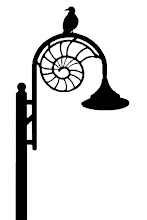Chris Castle
So Close to All This Water
Silver Cane
Mary-Jean Harris
The Secret
Jasmine Giacomo
Rediscovering Home
Donal Mahoney
Bells from the Cathedral
Snapdragons Crackle
Nicholas J. Carter
Hell on the Highways
K. Bond
The Collector
Robert Lee Frazier
The Dread that Visited Zurinia
Stephen Jarrell Williams
Driftwood
Wet
Over the Abyss
Brian Barnett
Fairy Tales on the Brain
Bruce J. Berger
June 1, 1967
Ann Cro
The Bones Under the Oak, Part III
The Bones Under the Oak, Part IV & V
Austina Wan
Little White
Michael C. Keith
Robin On Air
Kenneth Radu
Good Neighbours
Howie Good
The Poor Swimmer's Guide to Modern Swim Strokes
Christian Berntsen
The Sun Shines Down
Richard Williams
Fear of Flowers
Thomas Healy
On the Fringe of the Congo
Hal Kempka
The Princess and the Dimwit
Nima Kian
from 'Blossoms of Decay'
Masked
Erin Swan
Blood
Au Clair de la Lune
Dear Flowers
Jenni Saarenklä
The Bear is the Forest
Taikametsä
Cédric Abt
Un jardin tout sec
La bulle
Rosie Colligan
French Red Riding Hood
Elisabeth Zartl
Collecting Stars
Serhat Albambi
Following the Owl
Kaptan Remzi
Pek Eylenceli Bisi
Teresa Martinez
Los duendes abandonados
Luces entre los Alamos
Tom Brown
Personal Demons 1-2
Aurore Peuffier
The Beast of the Forest
Squid & Pig
The Princess and the Pea
Hansel and Gretel
UFO 3
Old Guys
Mexico on the Moon
Homecoming
Waiting for an Old Friend
Alessandro Andreuccetti
Bosco in Autunno
Il Flautista
Remove I
Remove II
Remove III
Remove IV
Zuzana
Two Sides 2
Steven Warrick
The Sea Serpent
The Octopus

